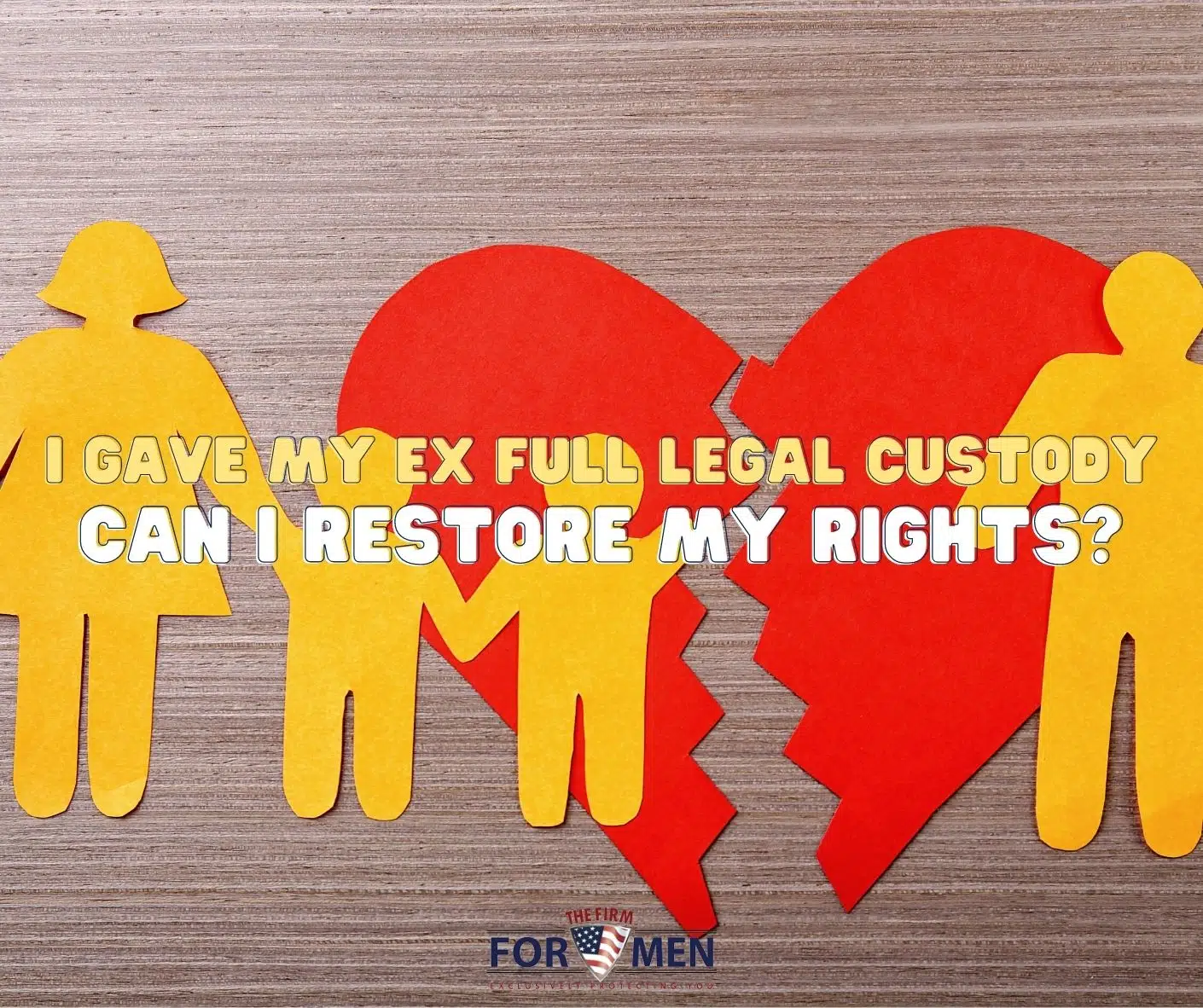If you had a BINGO board for our blog articles, the “best interests of the child” would get covered in every game. Today we are talking about clawing back rights related to child custody in Virginia, which means everybody’s favorite phrase—let’s just call it the BIC—will make multiple guest appearances.
Jump to a Section
- Virginia Custody Explained
- The Best Interests of The Child
- Giving Up Legal Custody in Virginia
- Rights of Parents and Children
- Modifications and Material Change in Circumstances
Virginia Custody Explained
Civil law has to anticipate just about everything humans can do, and then outlaw some behaviors while safeguarding others. Protecting Virginia’s children is a serious responsibility for, well, everyone in the Commonwealth, from legislatures to judges to parents and teachers.
When parents divorce, their minor children must still be cared for, nurtured, and kept safe. Child custody, then, has two aspects:
- Physical custody—One or both parents (or “persons with a legitimate interest”) are responsible for the care, sheltering, feeding, and clothing of children
- Legal custody—One or both parents are responsible for legal decisions made in the BIC
When either kind of custody is split between both parents, that is joint custody under Code of Virginia § 20-124.1. When either kind of custody is given by a Circuit Court judge to only one parent, that is sole or full custody.
The Best Interests of The Child (BIC)
The concept of the “best interests of the child,” BIC, is deeply ingrained in Virginia family law. The five-word phrase itself appears just about everywhere in Title 20, Domestic Relations. It is embedded in every decision made by a Circuit Court judge or a judge in a Juvenile and Domestic Relations District Court.
Your needs and wishes are not the courts’ priority. A judge will determine legal and physical custody based entirely on your children’s needs, the BIC.
When you and your children’s mother chose to break up your marriage, the courts stepped in to stabilize your children’s lives, exerting legal influence as a poor substitute for family security. You have to accept that the choice you two adults made—to divorce with children—can lead to ceding control of decision-making on behalf of your children.
The Commonwealth, in considering all aspects of child custody and parent visitation, acts as a superadult. The courts attempt to give your children a sense of wholeness, safety, and comfort that may be missing because of the breakdown of your family.
When You Give Up Legal Custody in Virginia, What Do You Give Up?
The long, painful time of a Virginia divorce can leave the two adults emotionally drained and confused. In the throes of anger, resentment, despair, and frustration, you may have signed away your rights to share legal custody with your children’s mother.
- Perhaps you felt that, if she had full physical custody, she should have had full legal custody
- Perhaps you were poorly served by your attorney
An experienced, attentive family law attorney would likely counsel against ceding full legal custody. Virginia’s courts want both parents involved in their children’s lives. (Know why? Because that’s generally in the BIC.)
What did you give up by giving your ex full legal custody? You forfeited legal input into your child’s:
- Education
- Religious upbringing
- Medical care
Gee. That’s a lot of important parenting you gave up there, isn’t it?
If you have come to your senses (or found a better attorney; hint, hint), you can appeal the child custody decision.
Rights of Parents and Children
The courts respect the rights of the parents, but zealously protect the rights of children. Just perusing Lynchburg’s Juvenile and Domestic Relations District Court web page on Custody, Visitation and Support gives you a sense of that:
- “The best interest of the child guides the court’s decision.”
- “If the parents are unable or unwilling to communicate very well regarding the best interest of the child, then the court will most likely award sole custody, legal and physical, to one parent, provided that it is in the child’s best interest.”
The divorce decree provided the strongest protections the courts could give to your children. The only way to change the decree is through those same courts.
Modifications and Material Change in Circumstances
For any aspect of a Virginia divorce decree to change, your attorney must petition the court for a modification based on “material change in circumstances.”
Combine that four-word phrase with the five magic words of the BIC and you have a strong case to regain joint legal custody.
Your attorney can argue to the court that:
- Your child’s needs—educationally, religiously, or medically—are not being met under sole legal custody by your child’s mother
- Your job schedule, income, or housing arrangements have improved; you can spend more time and money attending to your child’s educational, religious, or medical needs
- The child’s mother exhibits behaviors (drug or alcohol addiction, child neglect) that indicate she cannot fulfill her duties as your child’s legal custodian
- Granting you joint legal custody would be in the BIC
Modifying a divorce decree under Code of Virginia § 20-108 is not a casual undertaking. Your attorney must:
- Set forth the reasons for the relief sought
- Revise and alter the decree concerning the care, custody, and maintenance of the children
- Make a new decree concerning care, custody, and maintenance of the kids
Keep the BIC in mind and, BINGO!, you have a good chance of regaining joint legal custody.
Please contact us today at The Firm For Men, or telephone our Virginia Beach office at (757) 383-9184. All we do, every day, is protect the rights of Virginia’s men. We can help you with every facet of family law, including custody issues.

